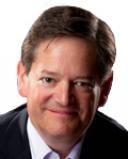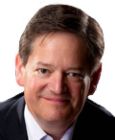Leadership
Pope Francis Faces the Future
Will the most powerful religious leader in the world do a new thing?
Posted April 9, 2013
On a Tuesday several weeks ago, one hundred and fifteen men gathered in secret to decide who among them would become the most powerful religious leader in the world. As so-called Vicar of Christ and pastor to the entire Christian Church, the pope has untrammeled power. According to Catholic doctrine, “the Pope enjoys, by divine institution, supreme, full, immediate, and universal power in the care of souls.”
Setting aside the question of whether anyone should wield such power, the question before Pope Francis is how he should use it. Happily, the Bible gives him a roadmap. “Do not remember the former things, nor consider the things of old,” God says through the prophet Isaiah (43:19). “Behold, I will do a new thing; now it shall spring forth.”
The cardinal electors were not borne to the conclave on wings of innovation, however. In fact, they became cardinals because of their proven resistance to change. An intentionally insular group, none of these electors supposedly has a spouse or a child, much less a terminally-ill spouse or a disabled son or daughter. None of them has a child who has been expelled from school or a spouse who refuses to go to rehab. None of them is trying to make a marriage work. None of them pays alimony or child support. None of them has ever had to choose between ending a pregnancy and closing off other options. None of them has ever needed an abortion because he was raped.
Here’s the irony: this lack of experience isn’t viewed as a liability among those who choose the most powerful religious leader in the world, but as a necessity. After all, if a cardinal had a gay son or a daughter called to the ministry, he might be less inclined to toe the line.
Make no mistake: I’m not saying that a priest or minister must have had all possible experiences to be effective. If that were true, none of us could serve in the role. But the lack of experience shouldn’t be championed as an essential qualification. It’s like saying that you’re qualified to do surgery only if you’ve never been in an operating room.
Despite this impediment, Pope Francis could heed the biblical mandate to do a new thing. He could move beyond the conventional wisdom of the first century (when the apostle Paul instructed women to keep silent in church) or the fourth century (when the Nicene Creed was adopted by vote rather than fiat) or the twelfth century (when priests were forbidden to marry). He could decide that forcing women to bear children is an assault on human dignity. He could decide that demonizing men who love other men and women who love other women demonizes part of God’s creation, which even God pronounced good. He could recognize that women do most of the teaching and nurturing in this world, both within the church and without, and that to deny them equal dignity and office should be anathema. The pope has the power to make these decisions.
The good news is that most of the 1.2 billion souls in the Catholic Church are busy doing God’s work in spite of the Vatican’s obstinacy. Millions of children around the world receive an education because Catholic teachers care enough to educate them. Tens of millions of refugees and displaced persons around the world receive food and medical treatment because Catholic relief workers care enough to come to their aid. Priests and nuns around the world minister tirelessly to billions of wounded spirits and broken hearts within their congregations, providing comfort and inspiration.
If Pope Francis takes the travails and aspirations of his flock as seriously as he takes the creeds and doctrines, he might do a new thing for women and for gays, as well as for priests and nuns, and for all the souls under his care. I remain hopeful, though my optimism is based not on the probability of change but on the possibility of change.
In my own view, the experience of God unites us with all that is present in our world, as well as all that is past and all that is possible. The life of the divine unfolds at the point of fulcrum where new things happen: where women and men search for truth, advance justice, and promote dignity in all human relations. My prayer for Pope Francis is that something other than the past will become possible—for him, for the souls under his care, and for all of us.


